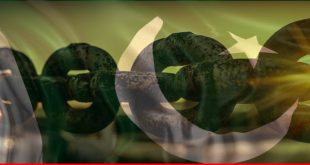It is often said that the fiscal and monetary policies of the country have been dictated by the multilateral lenders i.e. International Monetary Fund (IMF) and the World Bank. This statement is partly correct and partly wrong. Since the lenders give money they also want to ensure its return as per agreed schedule. Therefore, they have a major say in the formation of these two critically important policies. However, if the policy managers would have come up with ‘home grown’ policies and also tried to achieve the agreed targets with the multilateral lenders, the country would have never been under the clutches of lenders. The situation has remained real fragile because Pakistan has been borrowing to pay off the amounts borrowed in the past. The successive governments have also failed in containing budget deficit, mainly because of indulging in extravaganzas. Since the elected governments had to make compromises with the opposition the situation has led to yet another type of deficit. The country already suffering from budget and current account deficits now suffers from the worst deficit, trust deficit.
It is often said that Pakistan’s fiscal and monetary policies are driven or dictate by the multilateral lenders, but very few people ever bother to find out the reasons for the prevailing situation. The saying ‘beggars are not the choosers’ looks true for Pakistan. Since the rulers need money to perpetuate their rule and attain benefit they agree on each and every term without ever realizing the adverse impact of such borrowings on the next government and upcoming generations.
Ironically, lenders seem to have two recipes i.e. imposition of new taxes and hike in interest rate. They suffer from the illusion that imposition of new taxes can help in containing budget deficit and hike in interest rate is a toll for curbing inflation. However, in case of Pakistan both the points have proved wrong. Only the poor pay the tax through their nose but rich continue to enjoy exemptions. This country has a population of 200 million but less than 2 percent people pay income tax. These mostly comprise of salaried staff as professionals and feudal lords either don’t pay tax or a minuscule amount as bulk of their income is treated tax free.
High interest rate has the worst impact on the government itself. One can still recall that at one time the annual return on treasury bills used to be in the vicinity of 20 percent per annum. As a result bulk of the revenue collected goes towards interest payment. Banks suffer from a paradox, they are too happy on high interest received on lending to the government. However, they tend to forget that higher is the profit before tax, higher in the corporate tax. One can still recollect that when commercial banks were operating under state control, the corporate tax applicable used to be around 50 percent.
Impact of higher interest rate is also negative on the economy of the country because: 1) higher inter rate enhances overall all cost of project and 2) cost of goods manufactured is also higher, which becomes a reason for cost pushed inflation. Pakistani manufacturers of textiles and clothing often find themselves uncompetitive in the global market because of colossal financial cost. It is observed that bulk of the income of textiles and clothing and cement units goes towards debt servicing.
There is an urgent need to reduce interest rate on long-term lending (projects) to facilitate fresh investment and avoid cost pushed inflation. At present entrepreneurs face multiple adversities i.e. high interest rate, extensive load shedding of electricity and gas and precarious law and order situation. In the prevailing scenario most of the entrepreneurs defer their investment decision. That is the reason that rate of creation of new jobs is far below the population growth rate.
Along with creation of new job opportunities, there is a need to facilitate spending to enhance economic activities. This point can be best understood by the fact that when people have regular and dependable source of income they are ready to buy consumer durable on deferred payment. However, when they feel insecure, they tend to spend lesser and hold cash for the rainy days.
Sale of cars, motor cycles, air conditioners and other durables has gone down for two reasons: 1) decline in purchasing power and 2) unwillingness of commercial banks to lend under consumer finance. In fact banks are even not keen in lending to farmers/manufacturers but most willing to invest in the government securities, which offer attractive return and risk of default is minimal. Now these entities also boast about declining NPLs. One should not be carried away by their statements because bulk of their investment is in government securities, which are almost risk free.
Though, the governments have been talking about promotion of agriculture, SMEs and micro enterprises but high rate of interest charged from these entities hardly encourages any one to avail such facilities. On top of all highly complicated documentation process and fear of ‘atrocities’ of tax collectors, force public at large to stay away from banking system. Despite the best efforts of State Bank of Pakistan, its ‘financial inclusion program’ has achieved limited success.
 PAGE Blog Business Weekly Magazine
PAGE Blog Business Weekly Magazine

